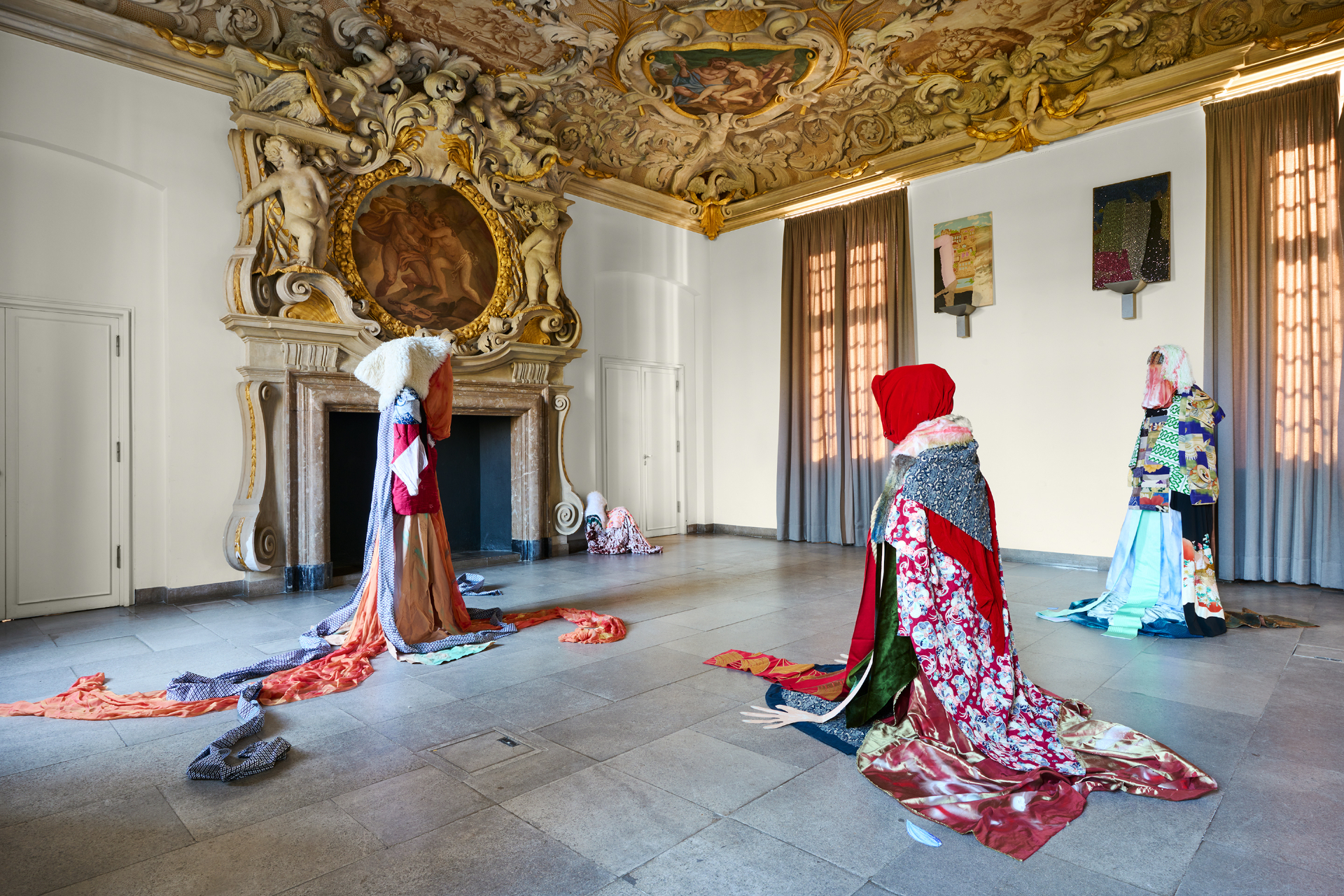
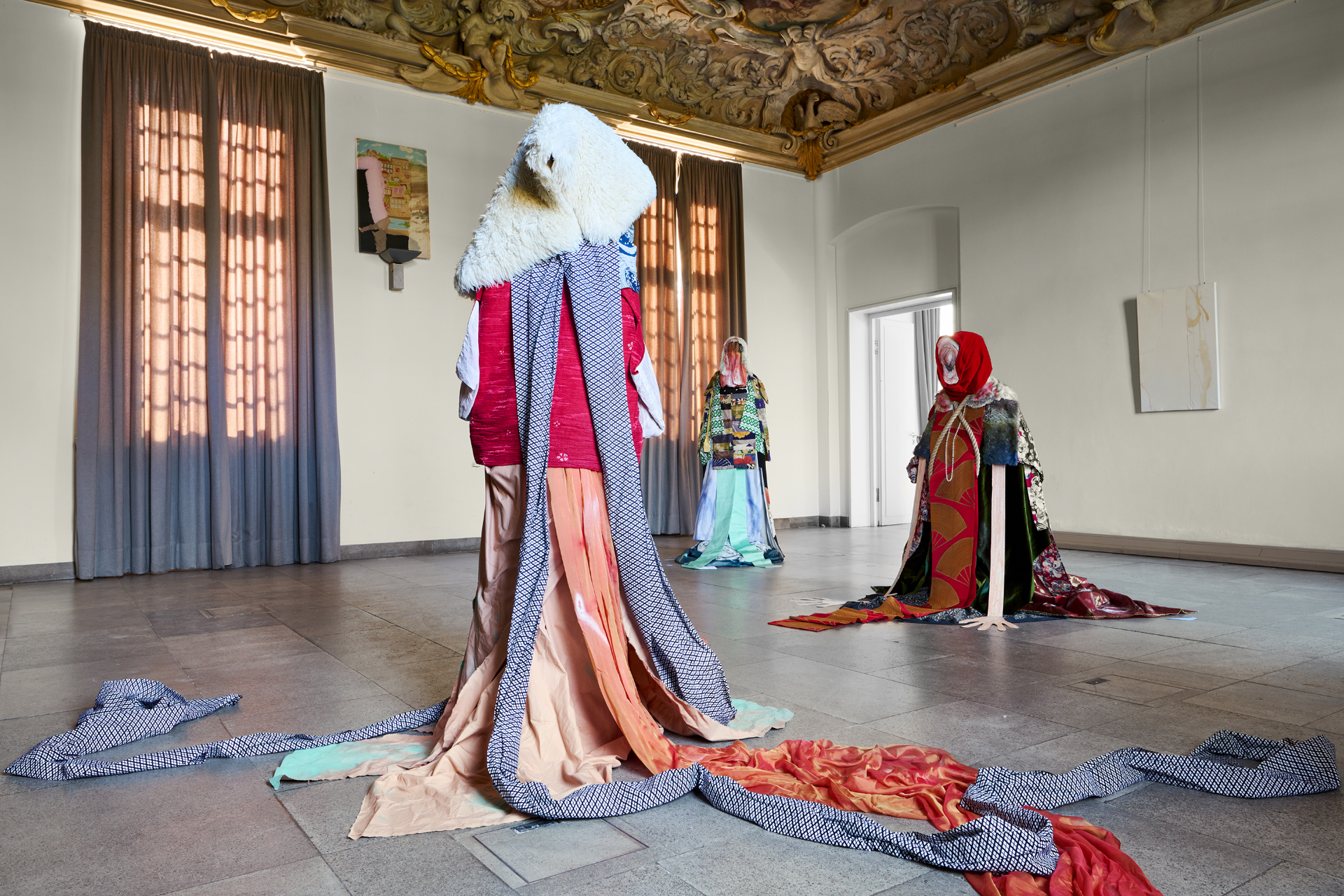
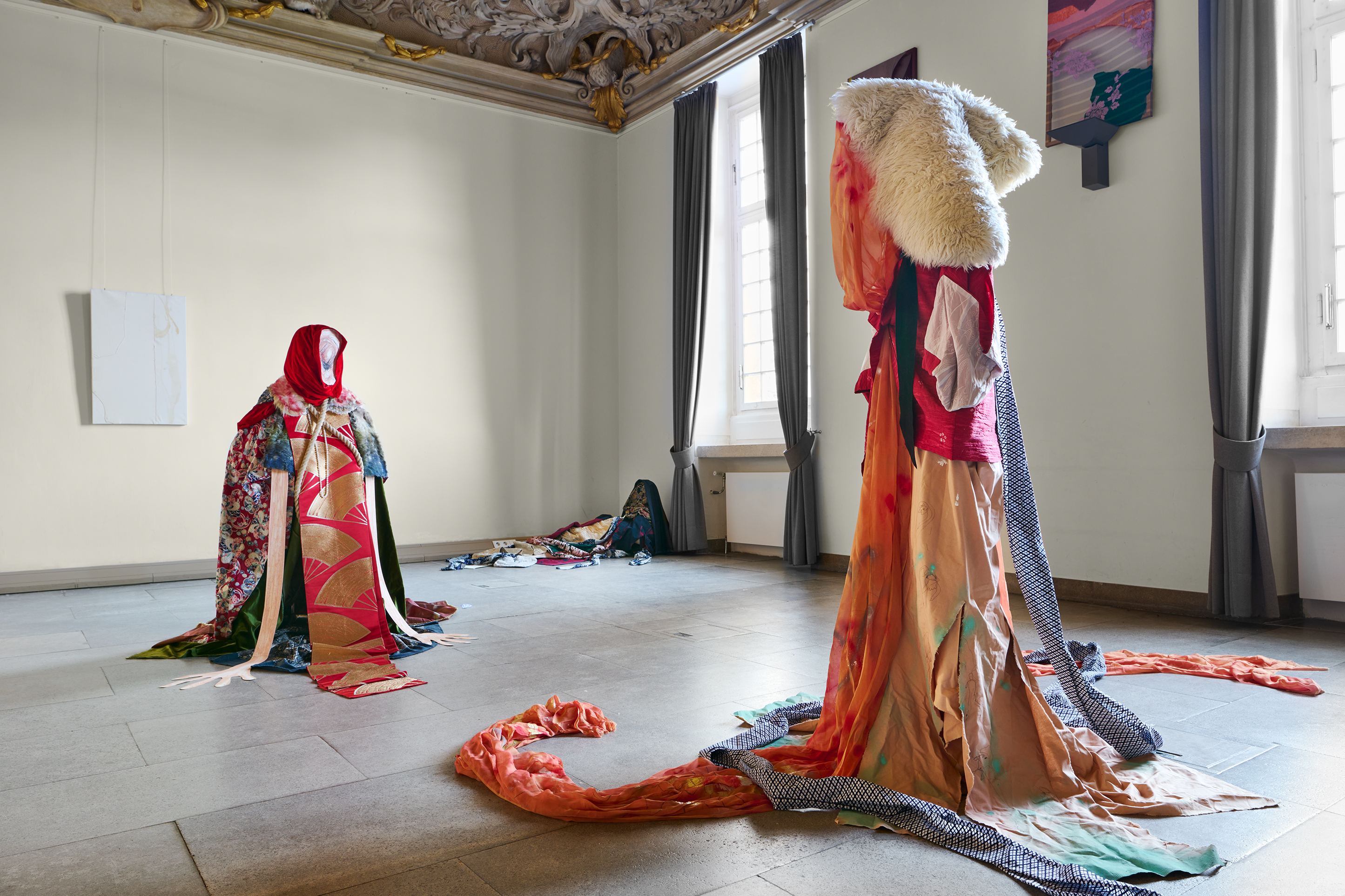
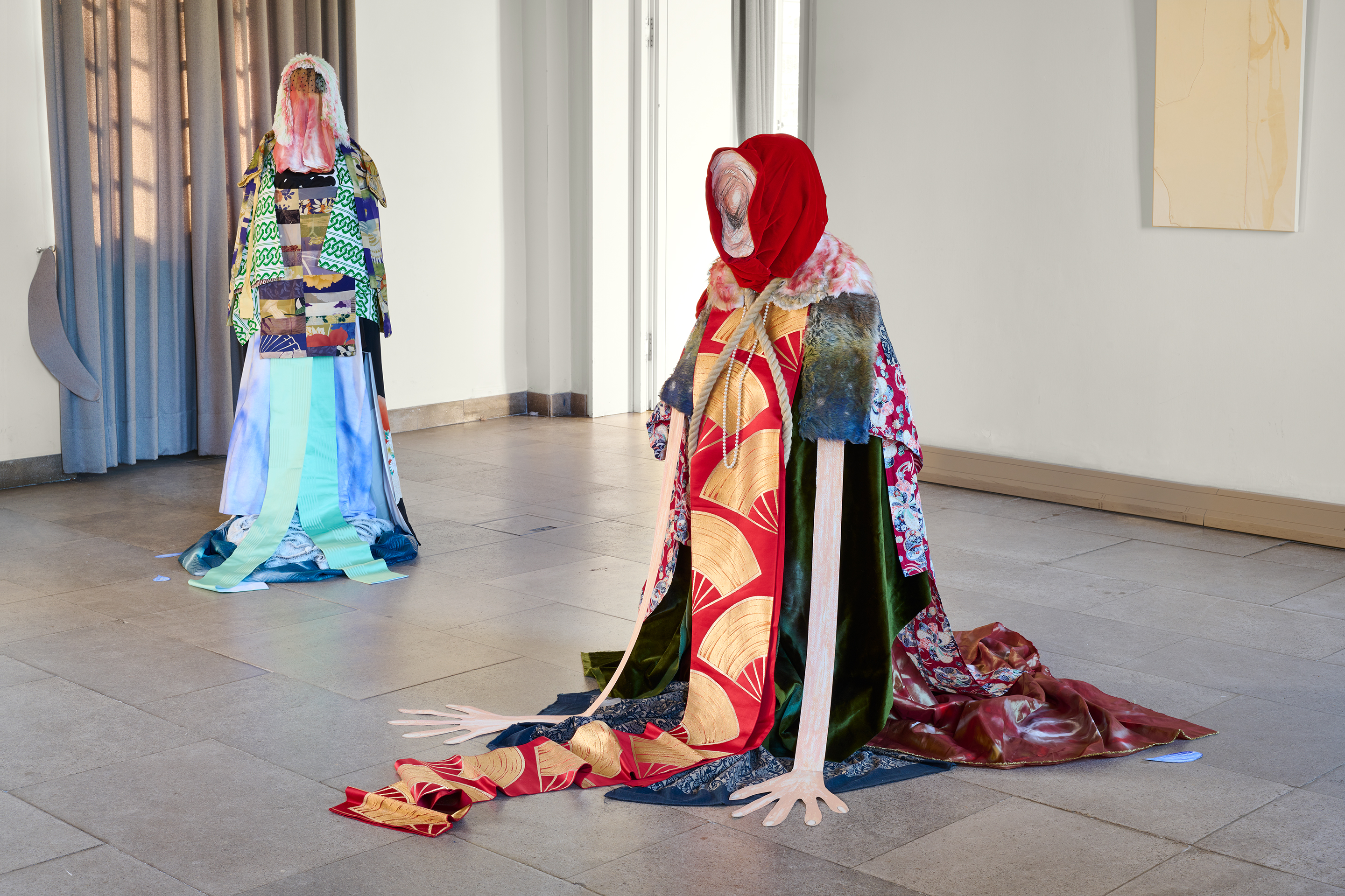
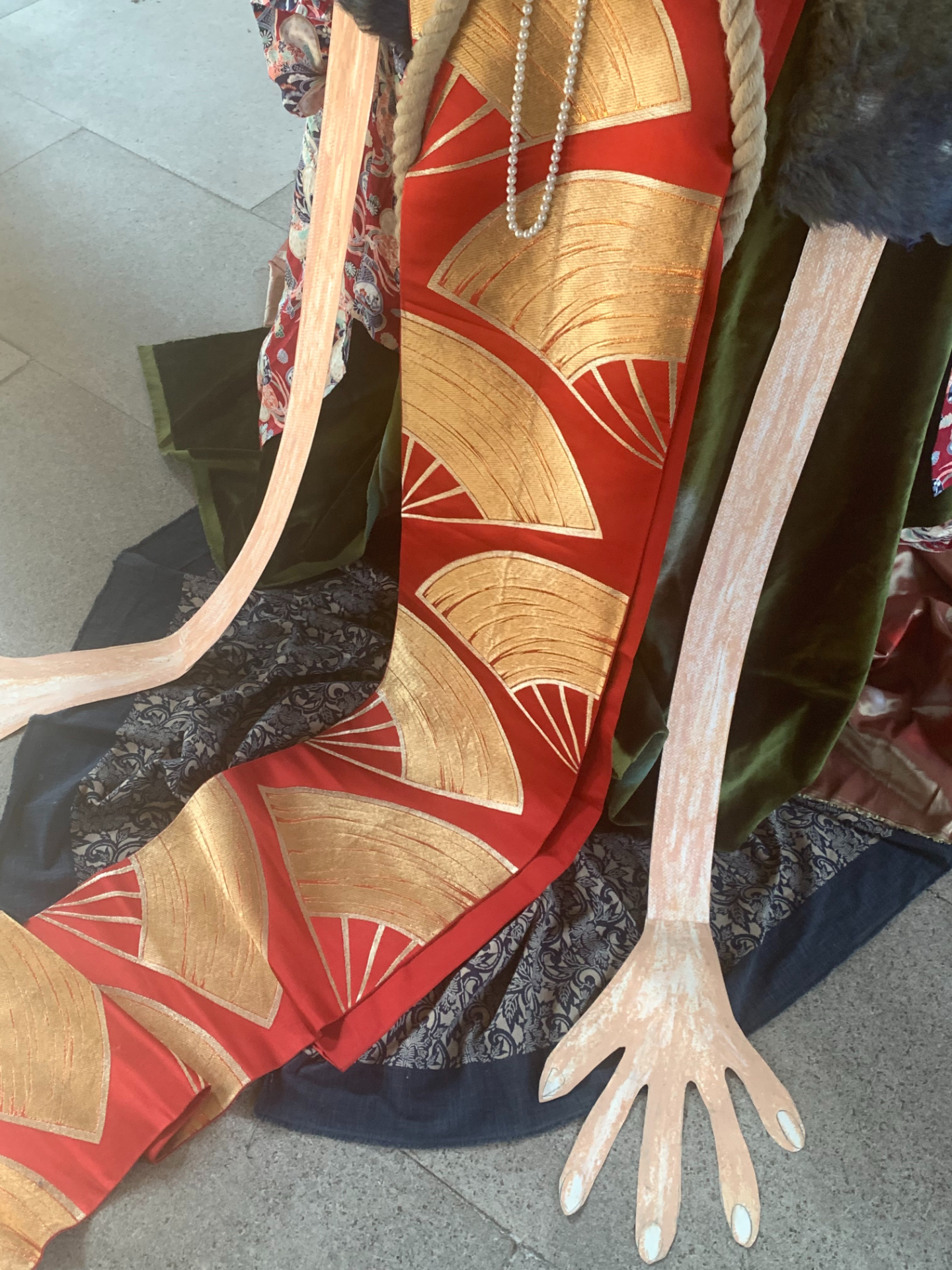
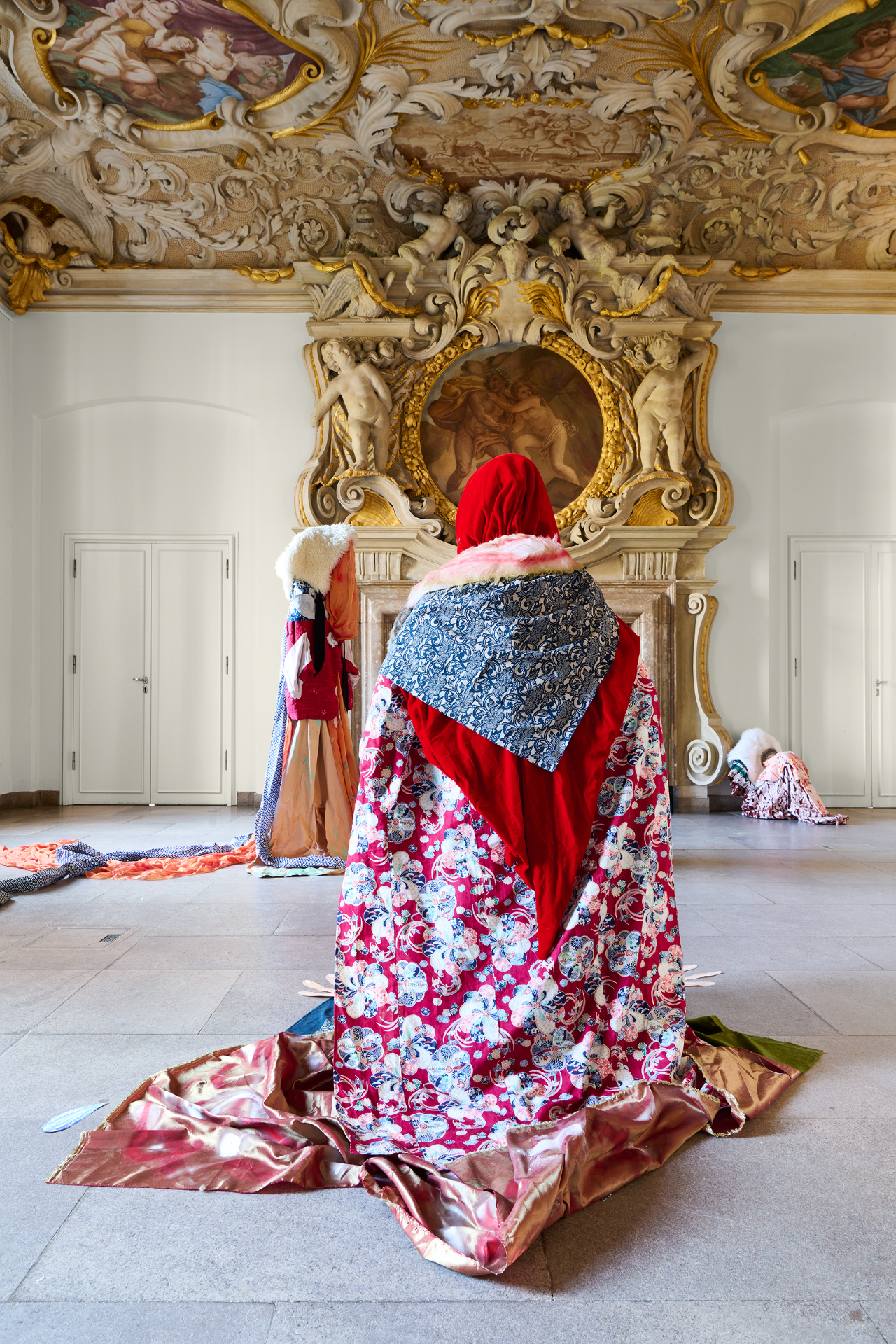
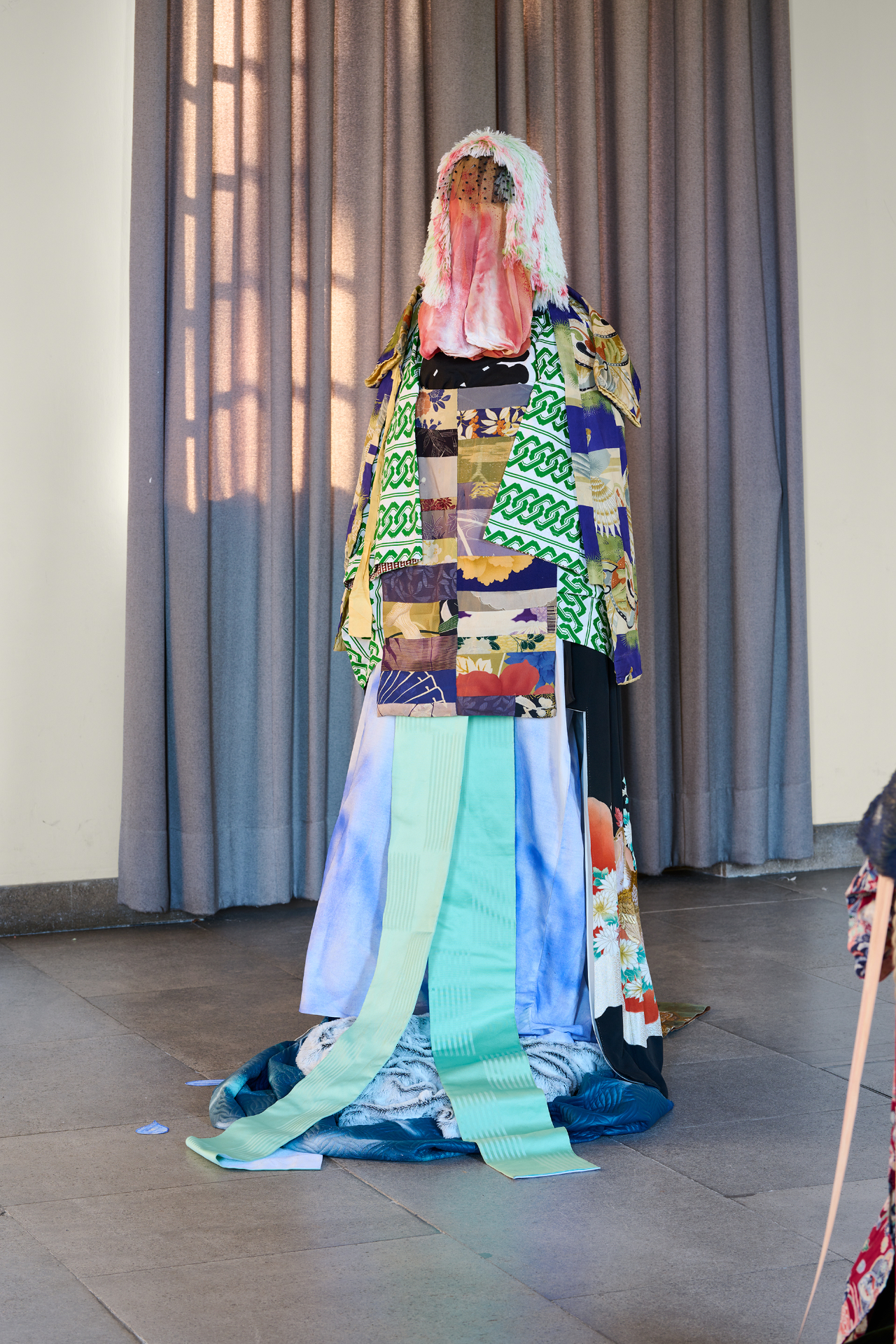
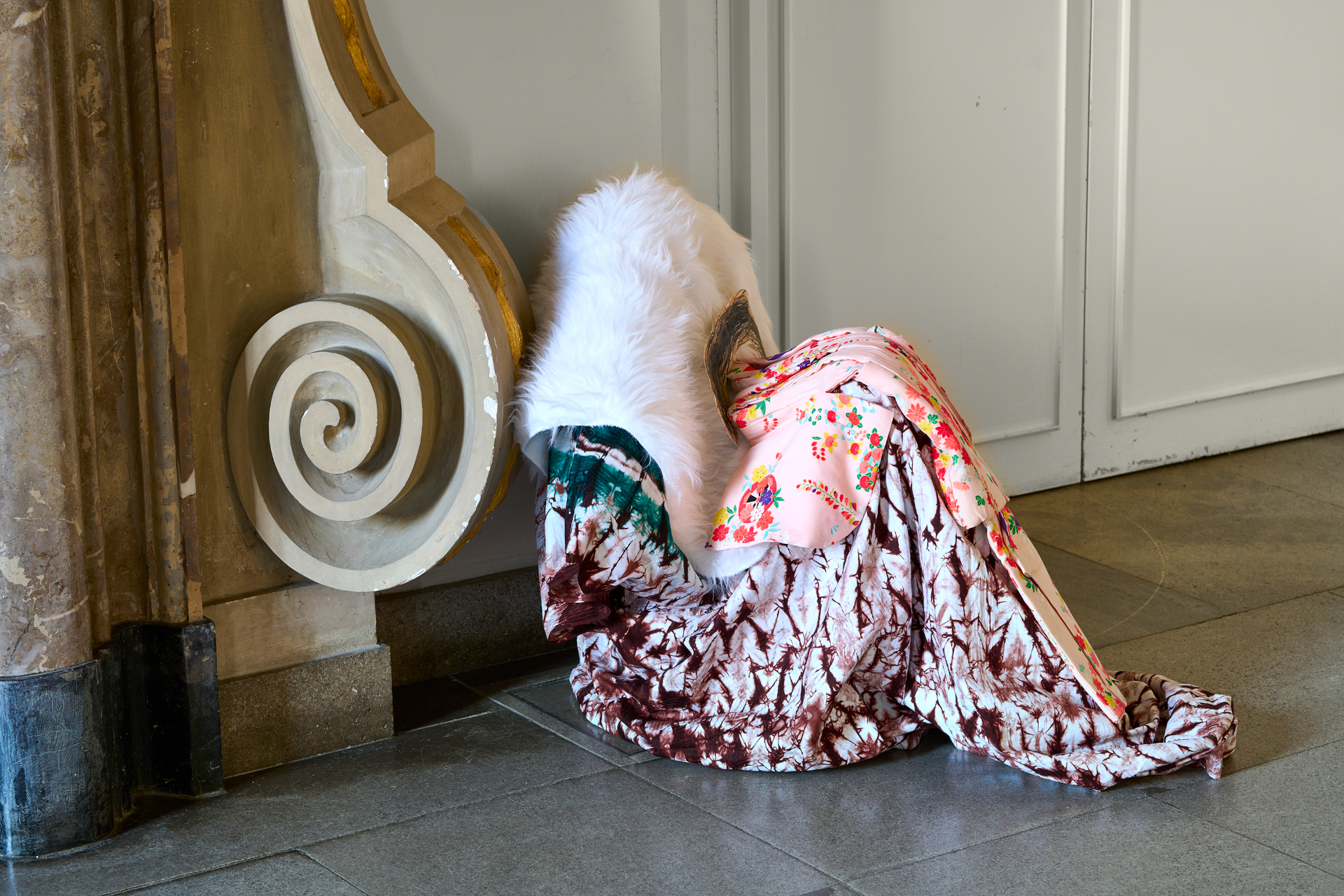
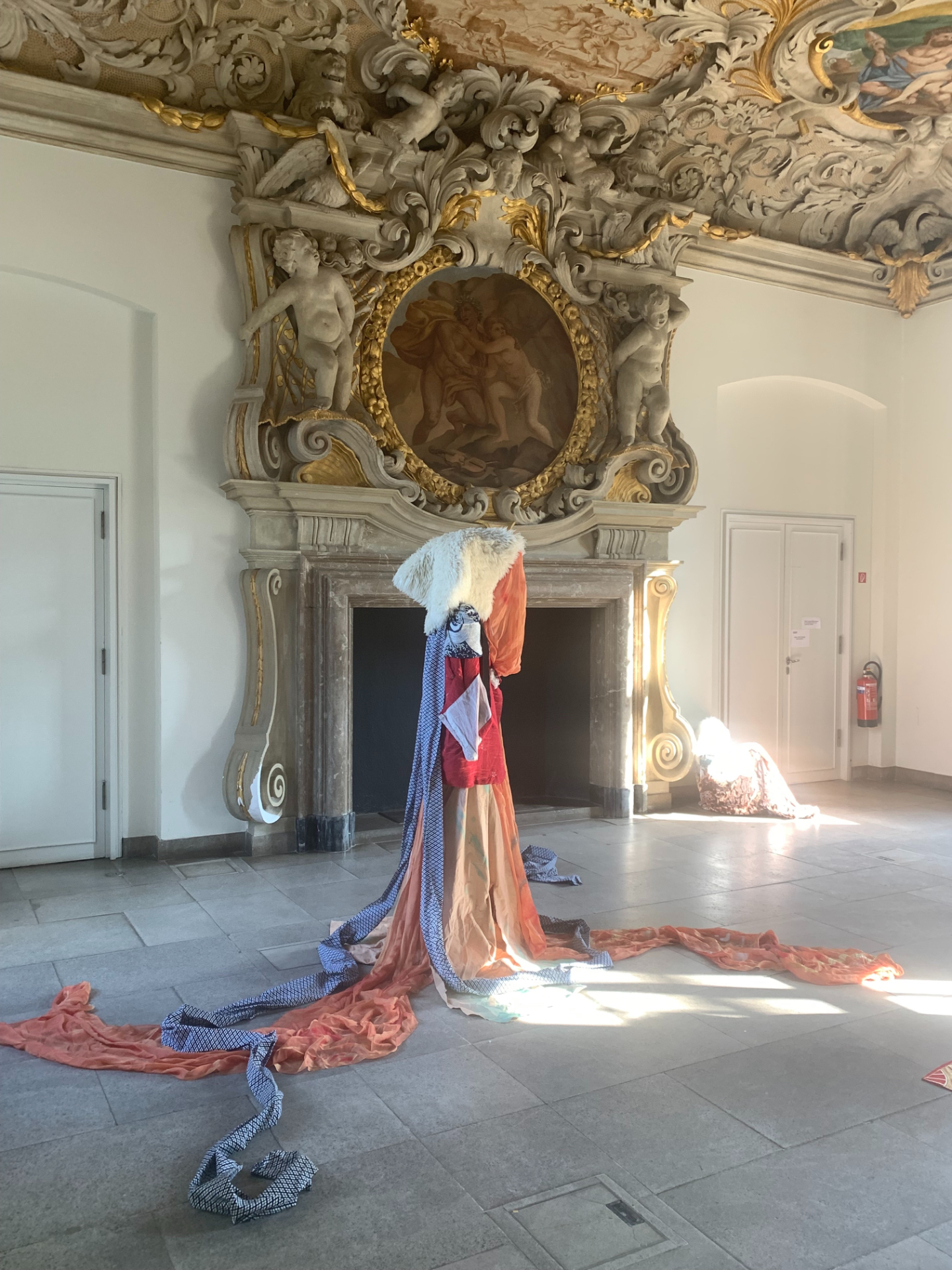
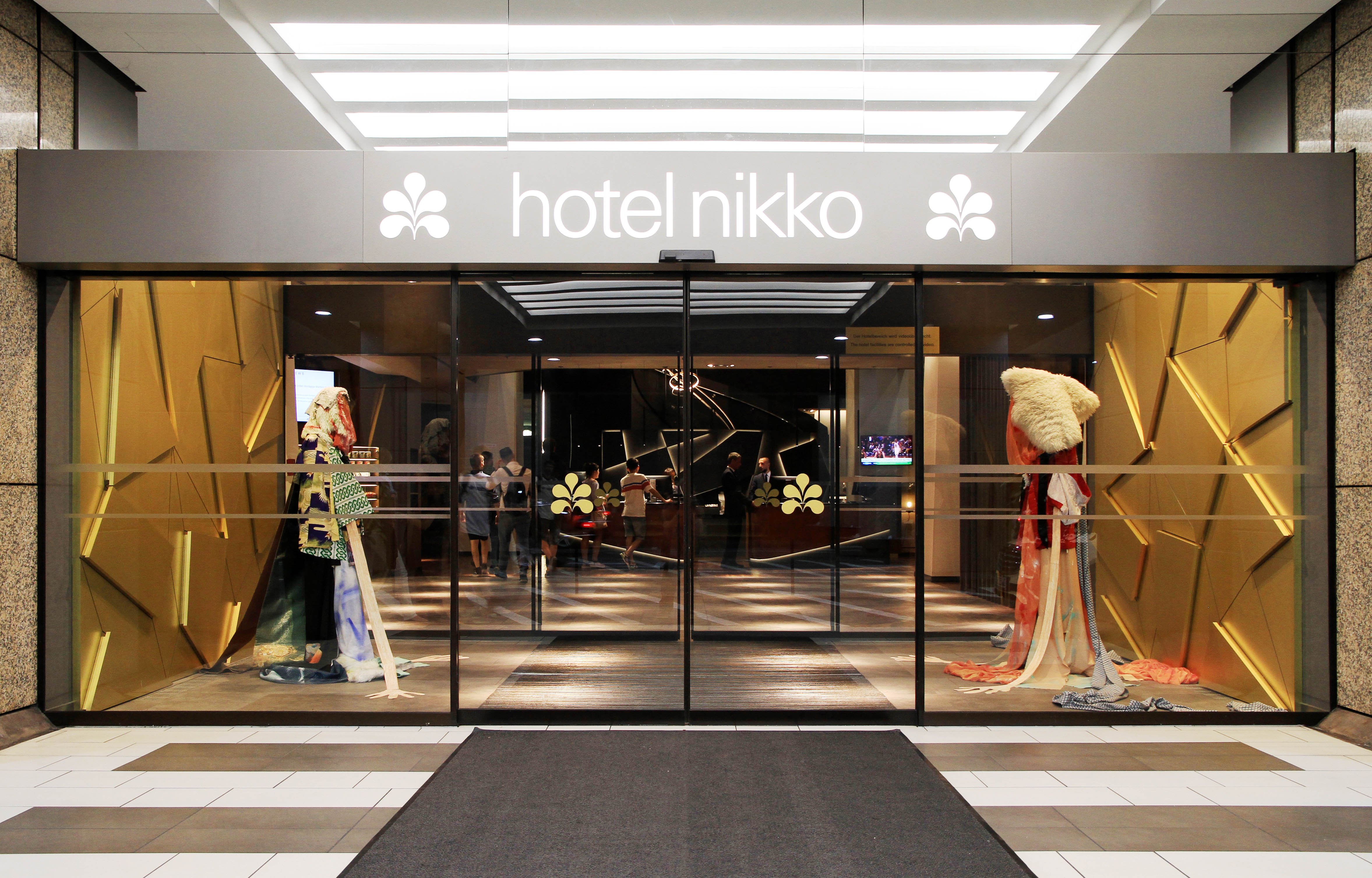
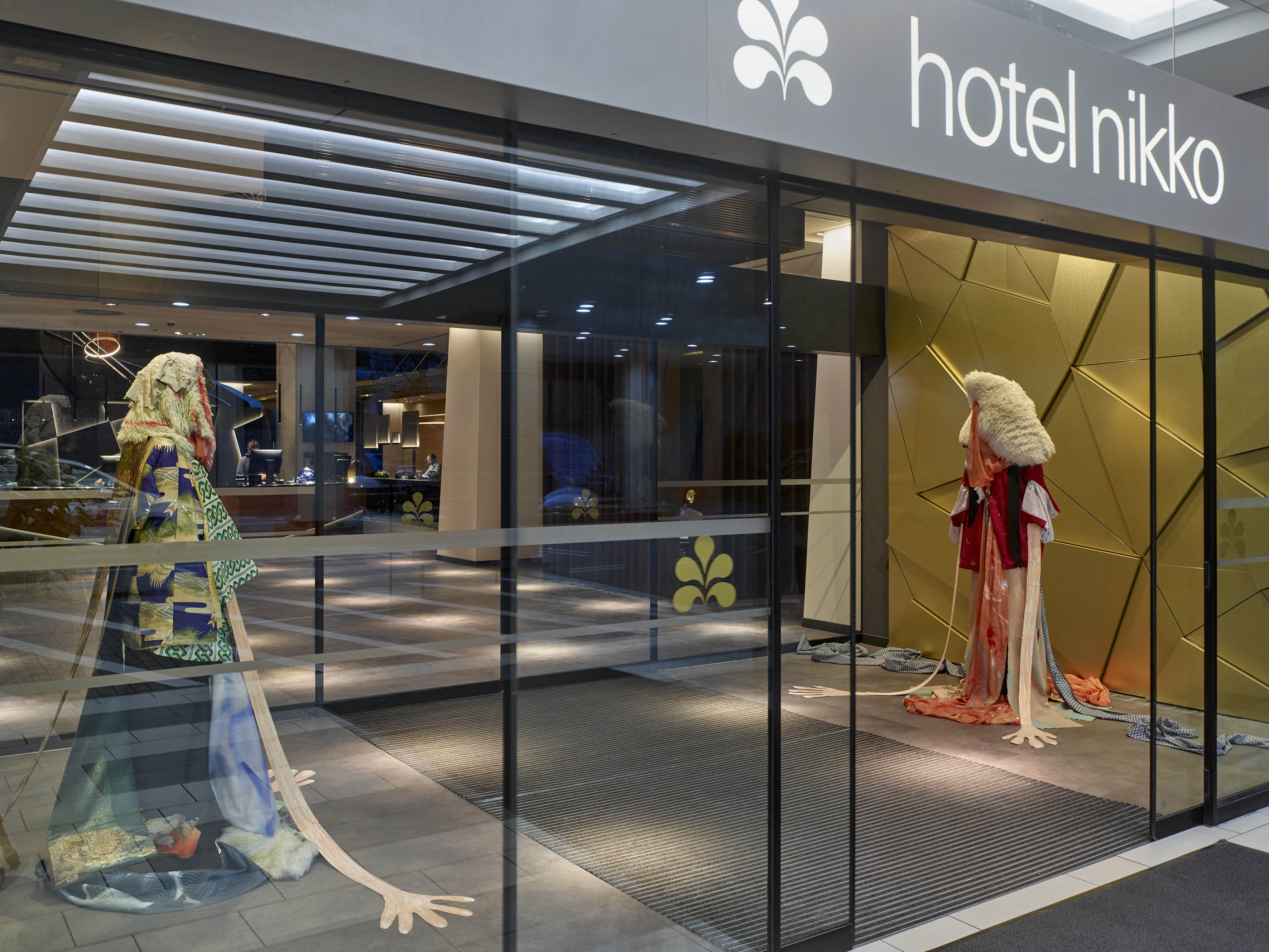
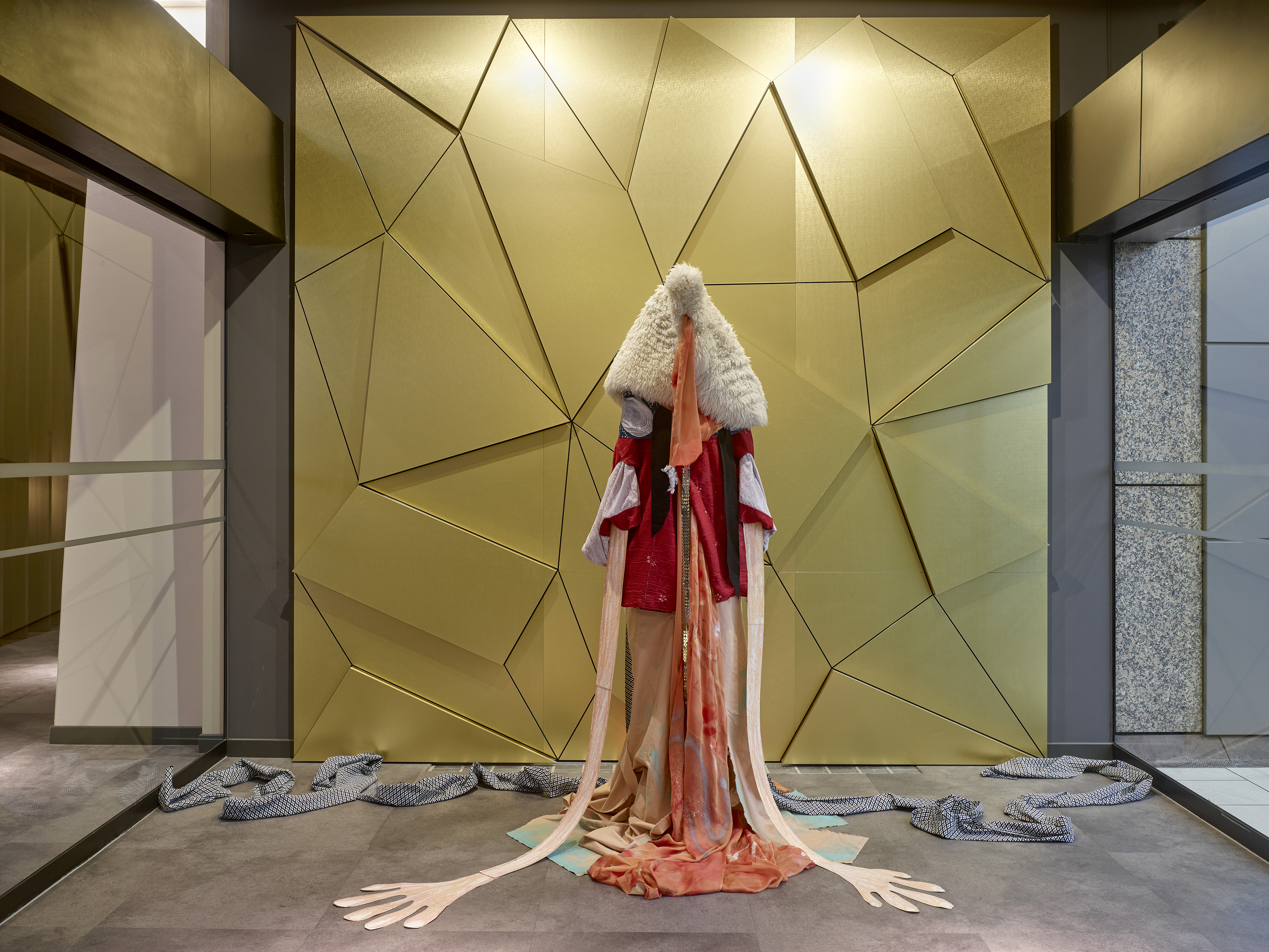
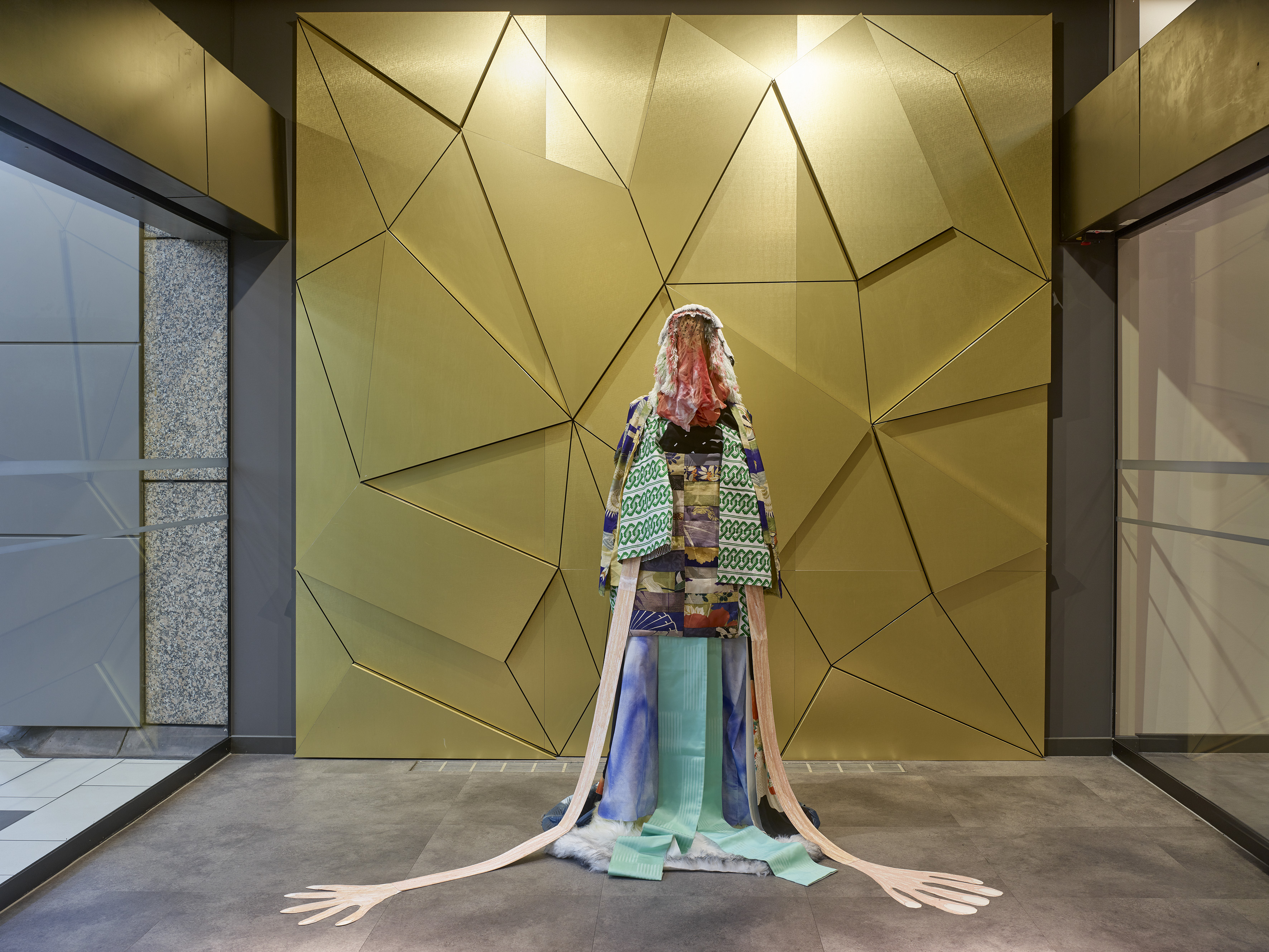
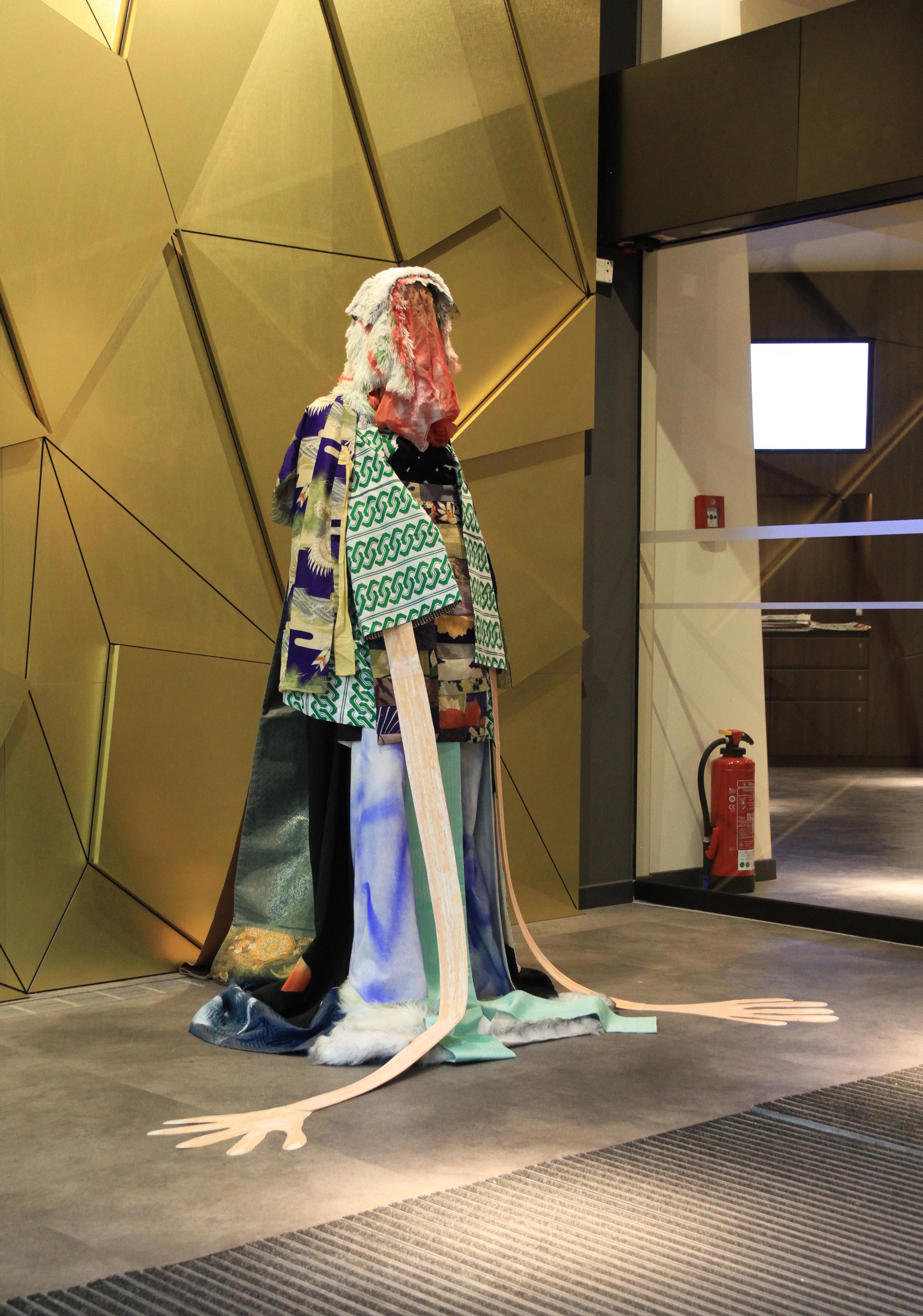
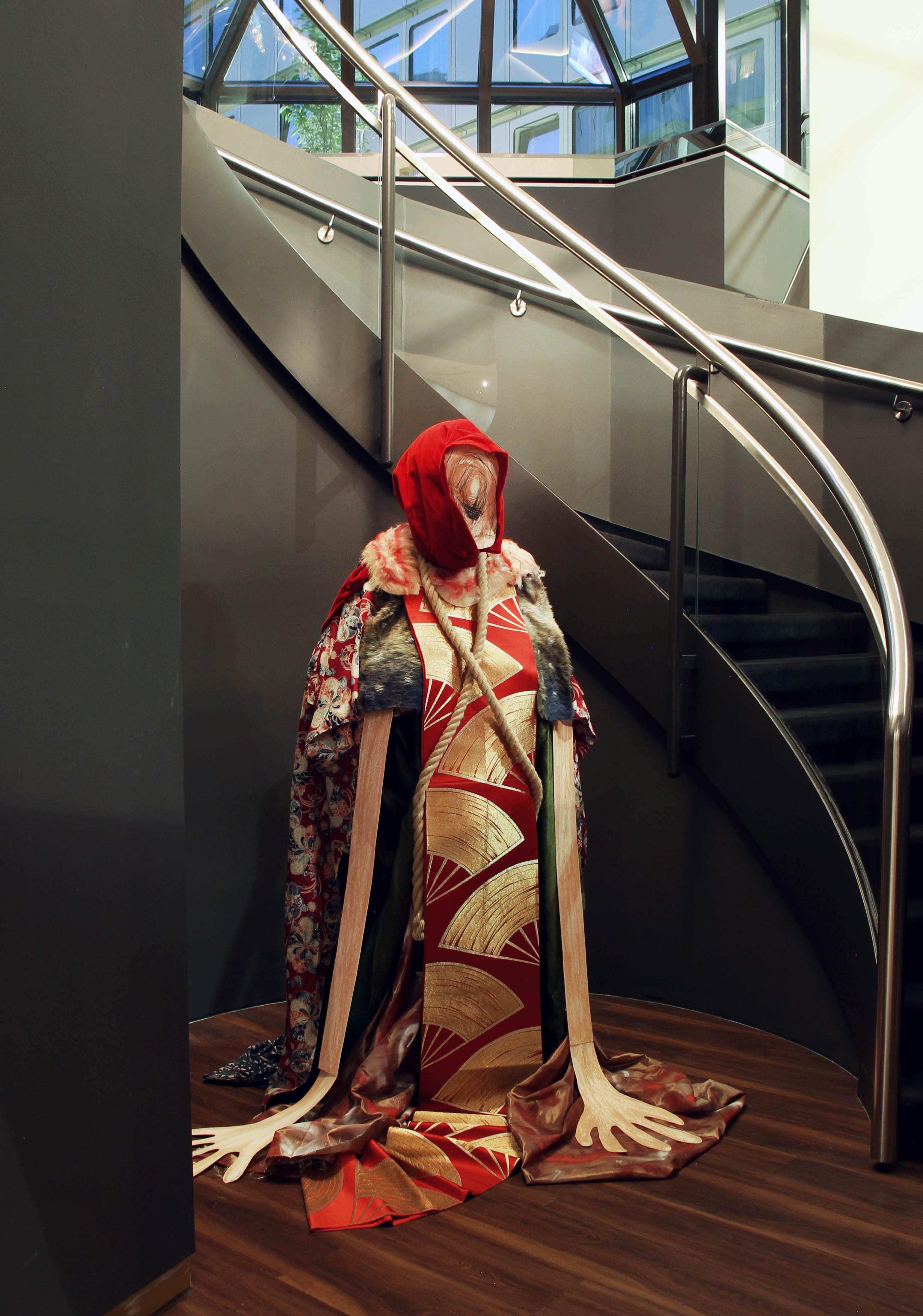
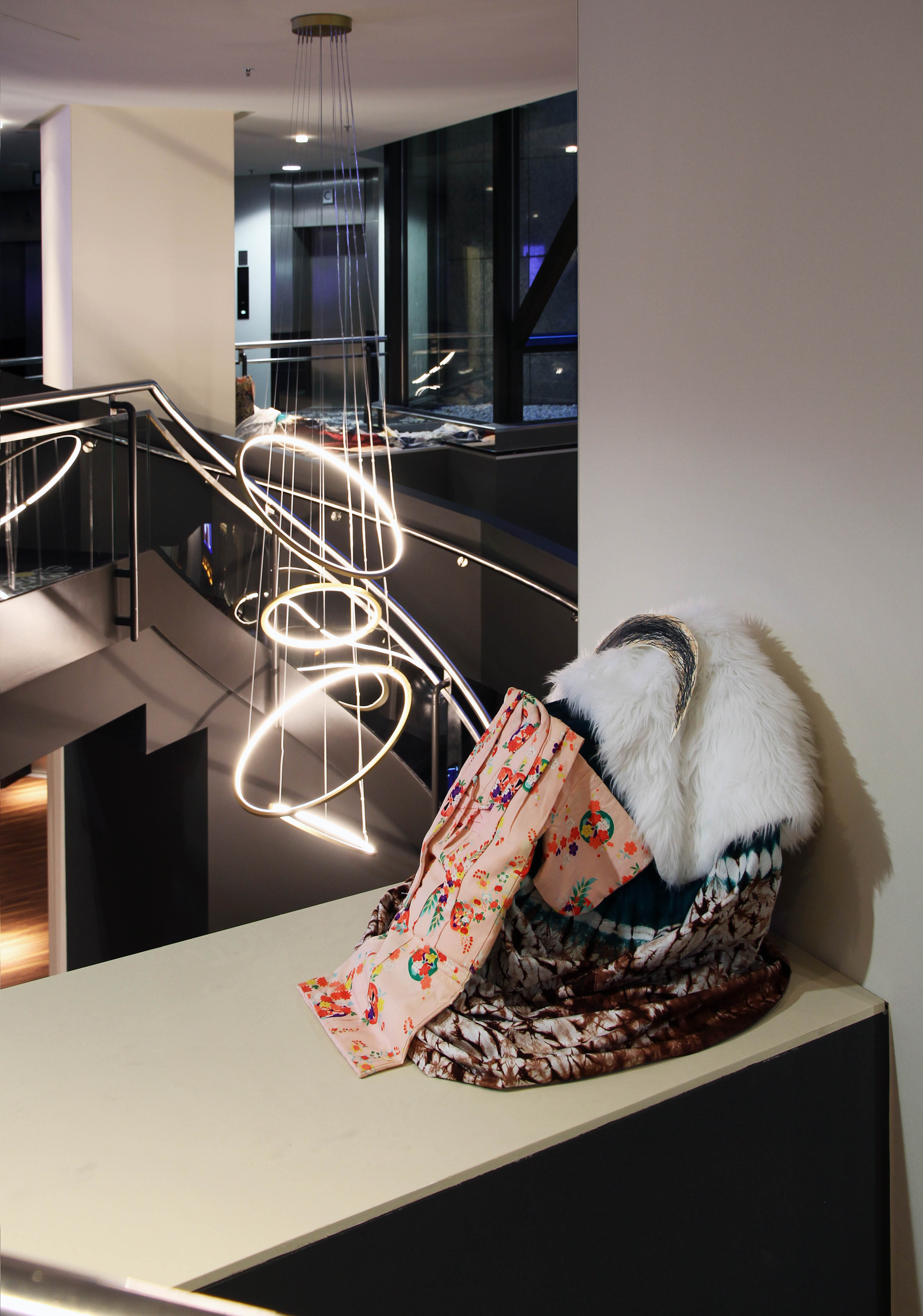
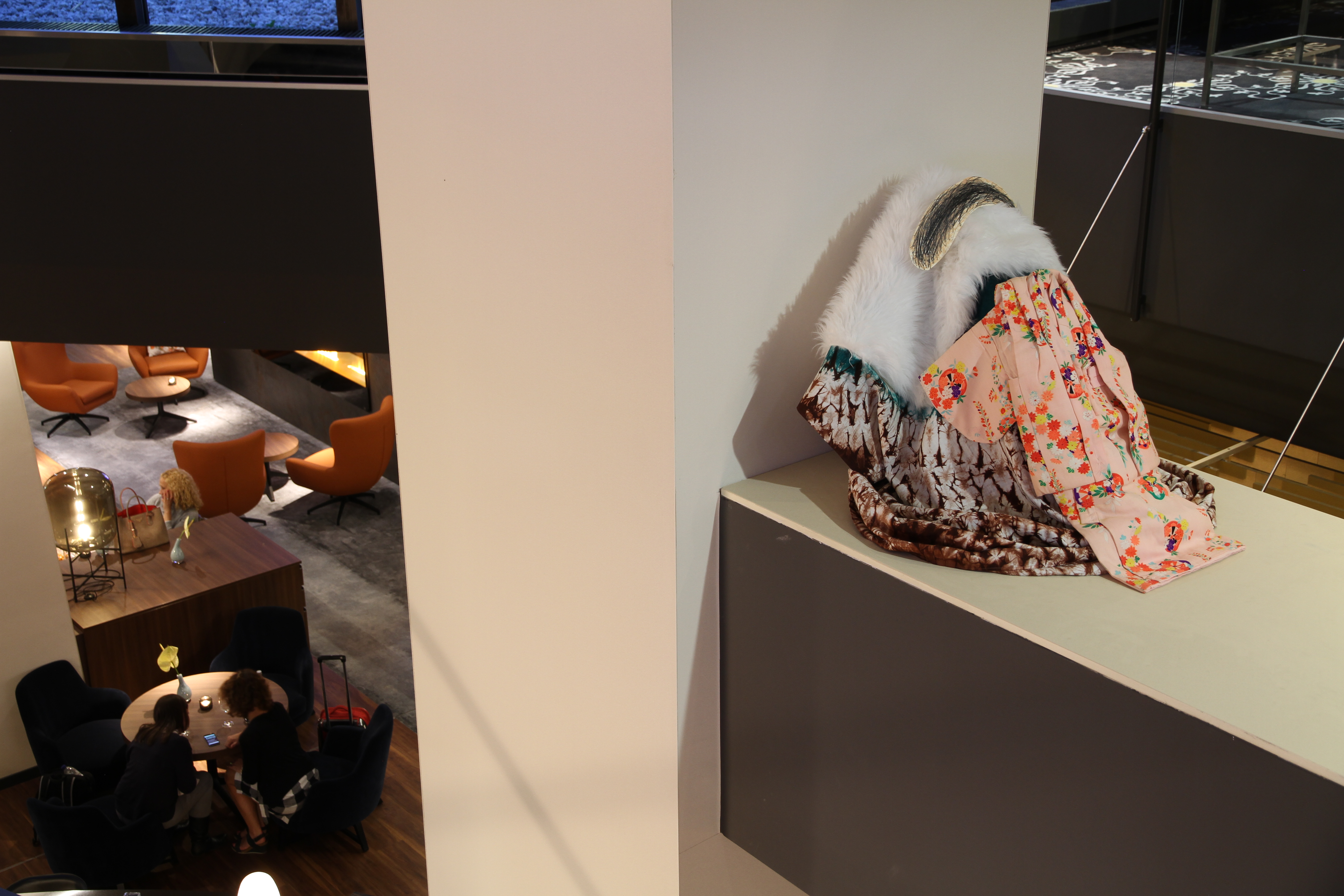
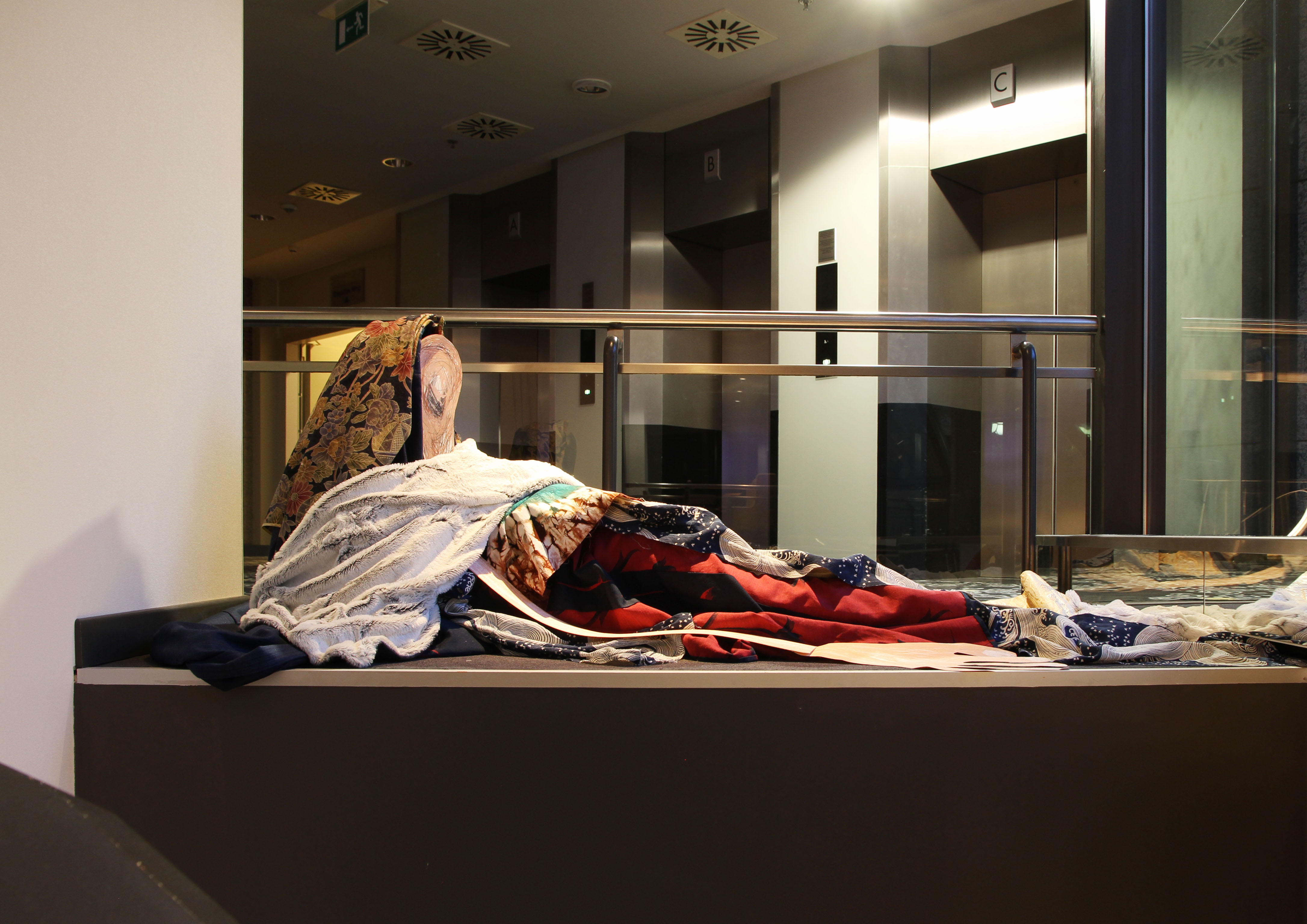
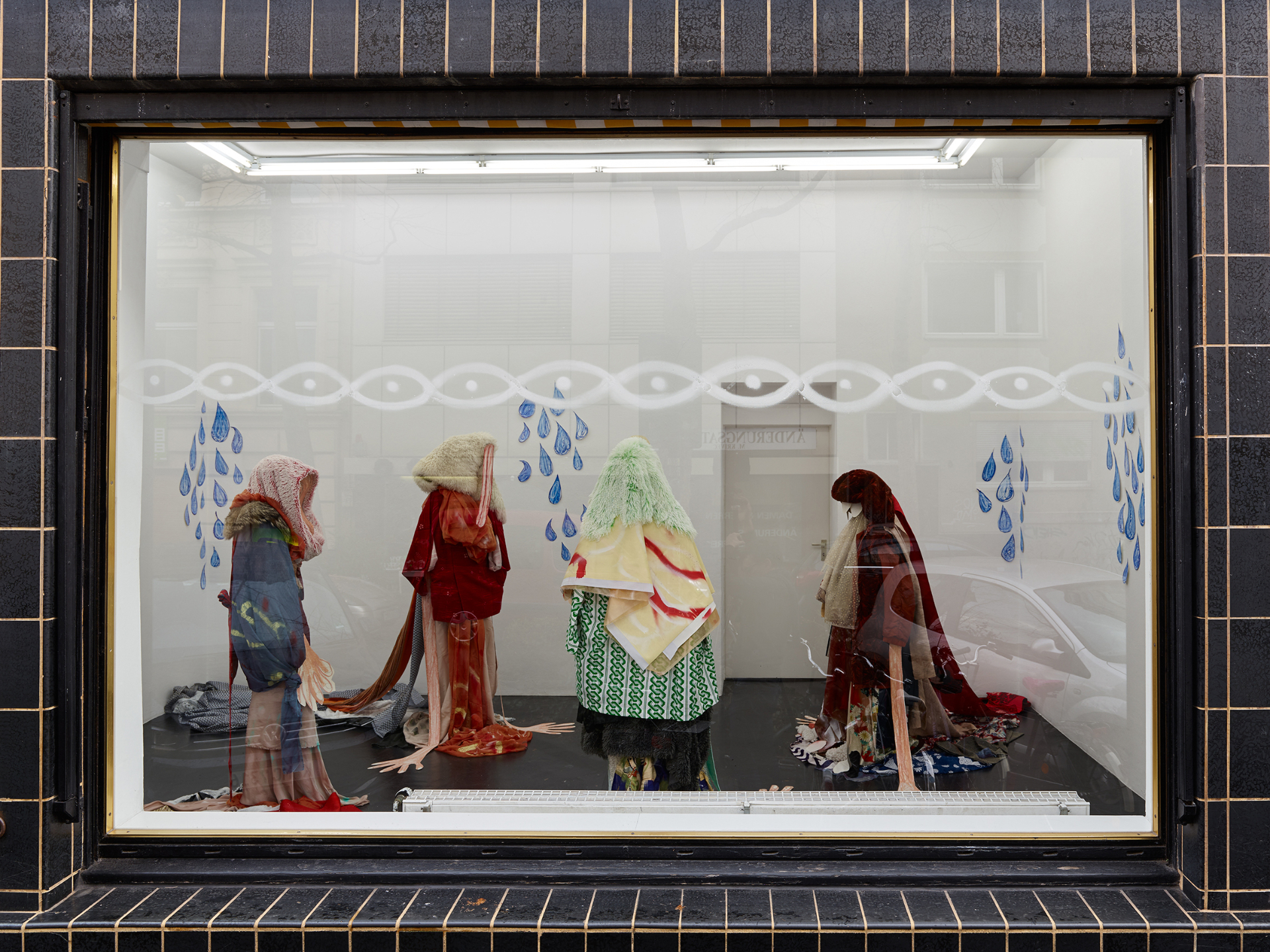
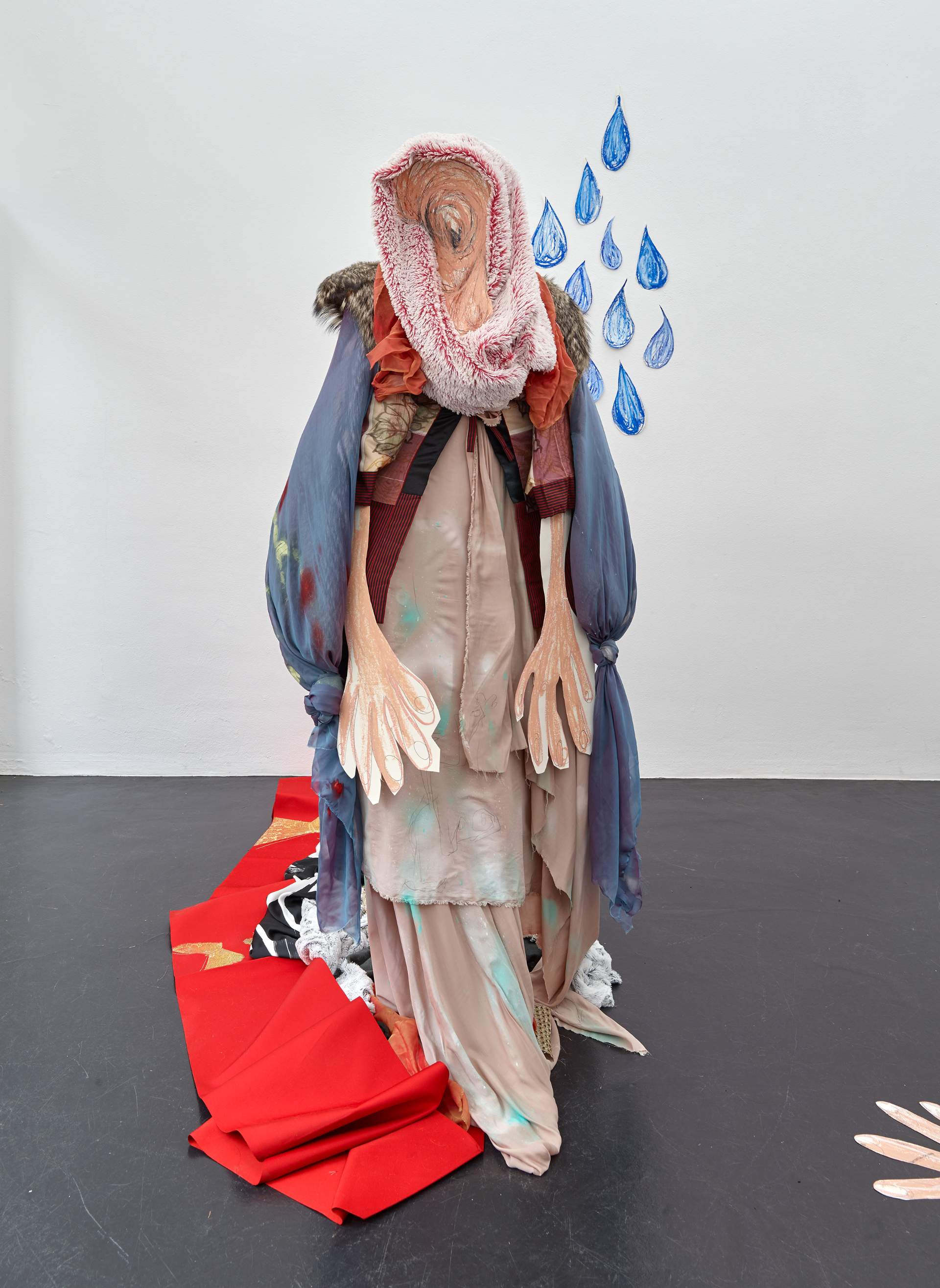
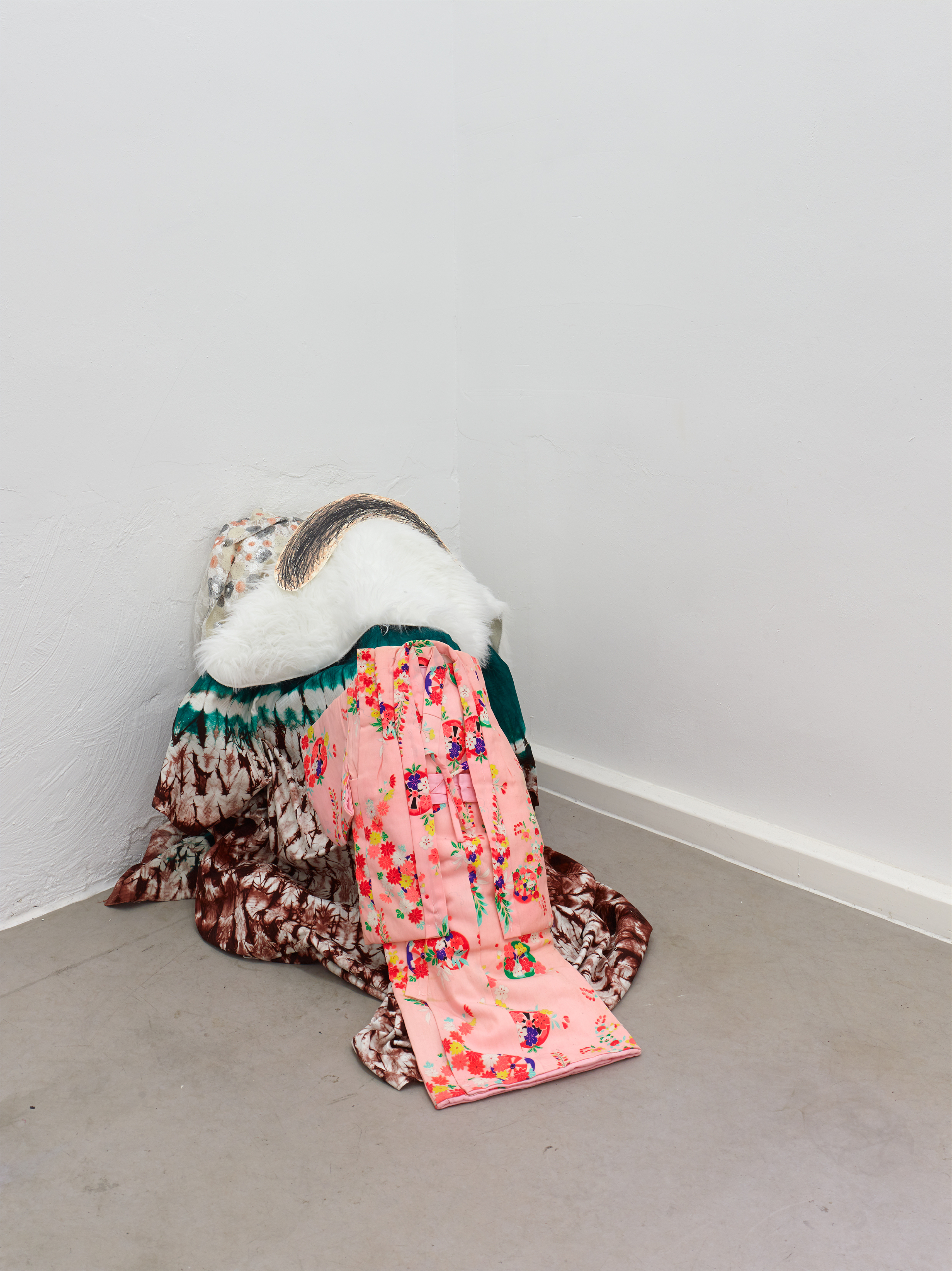
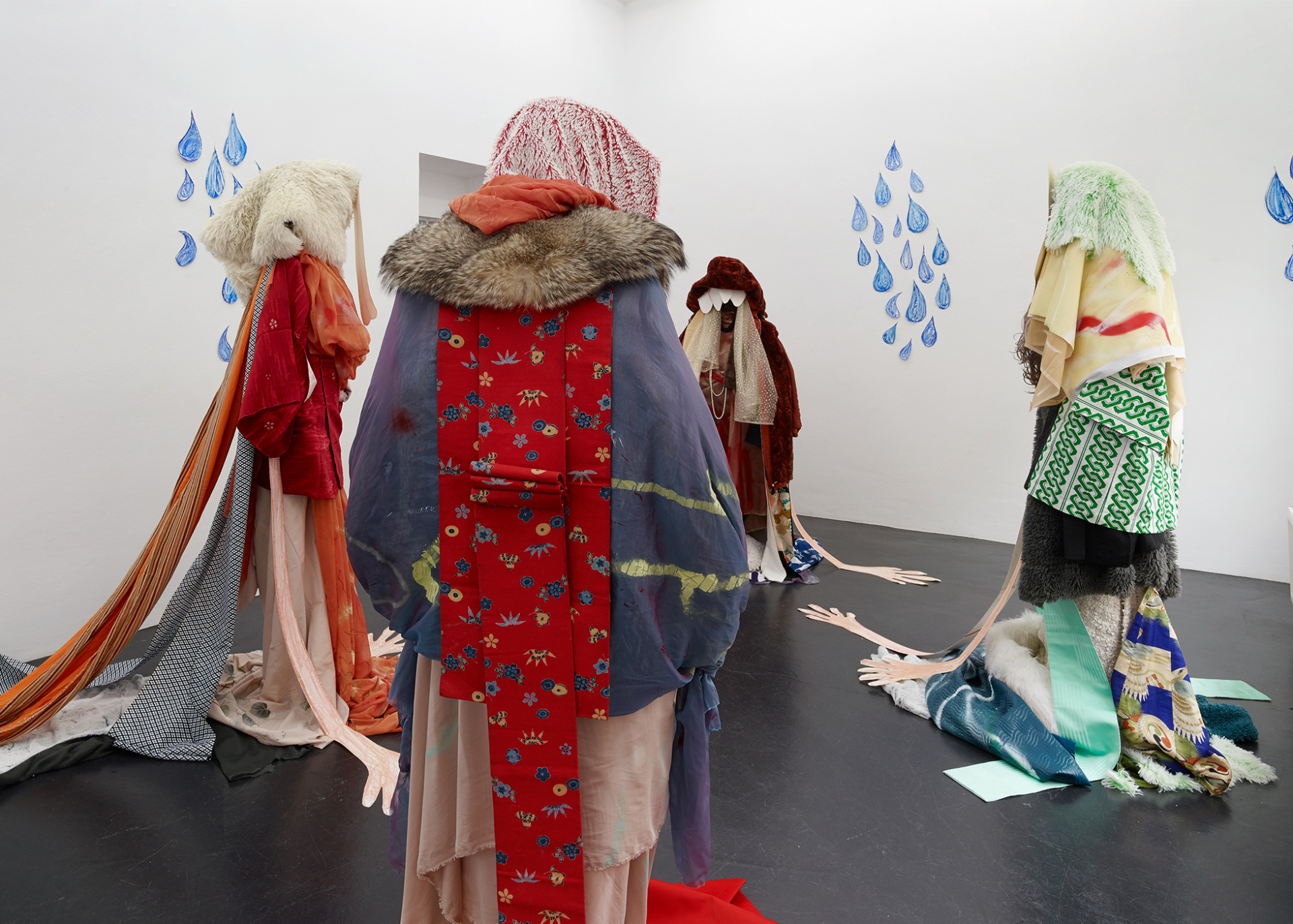
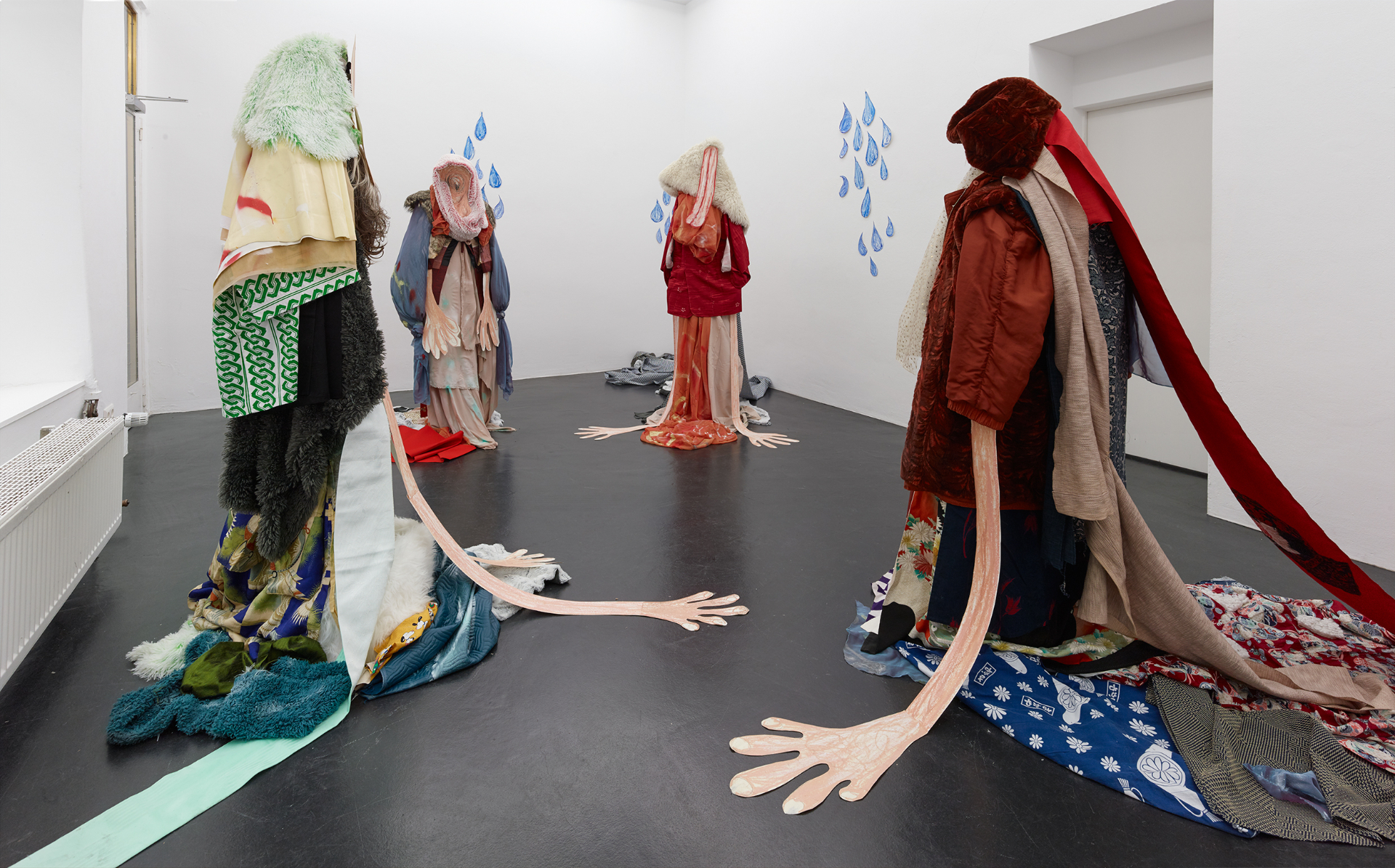
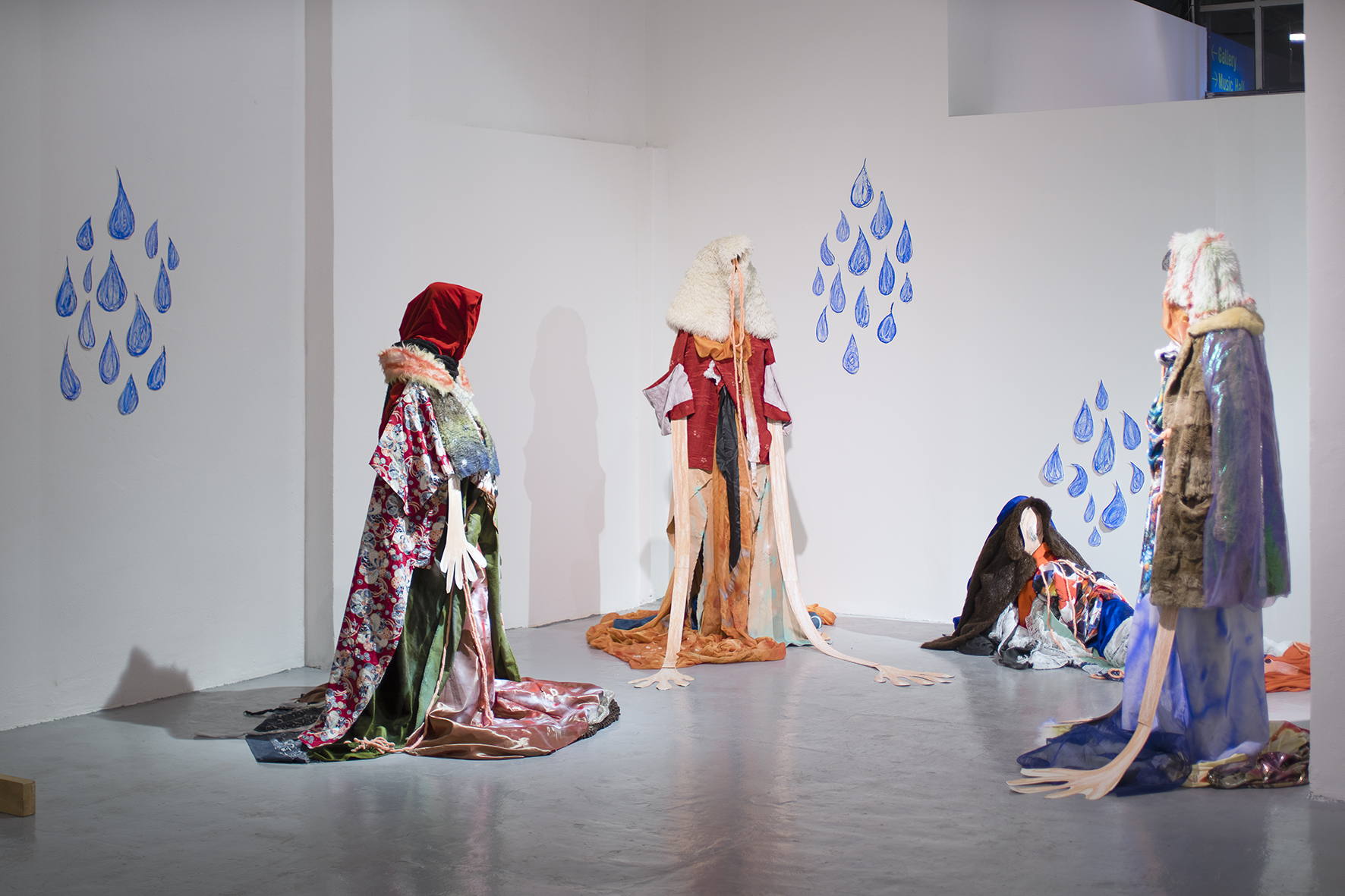
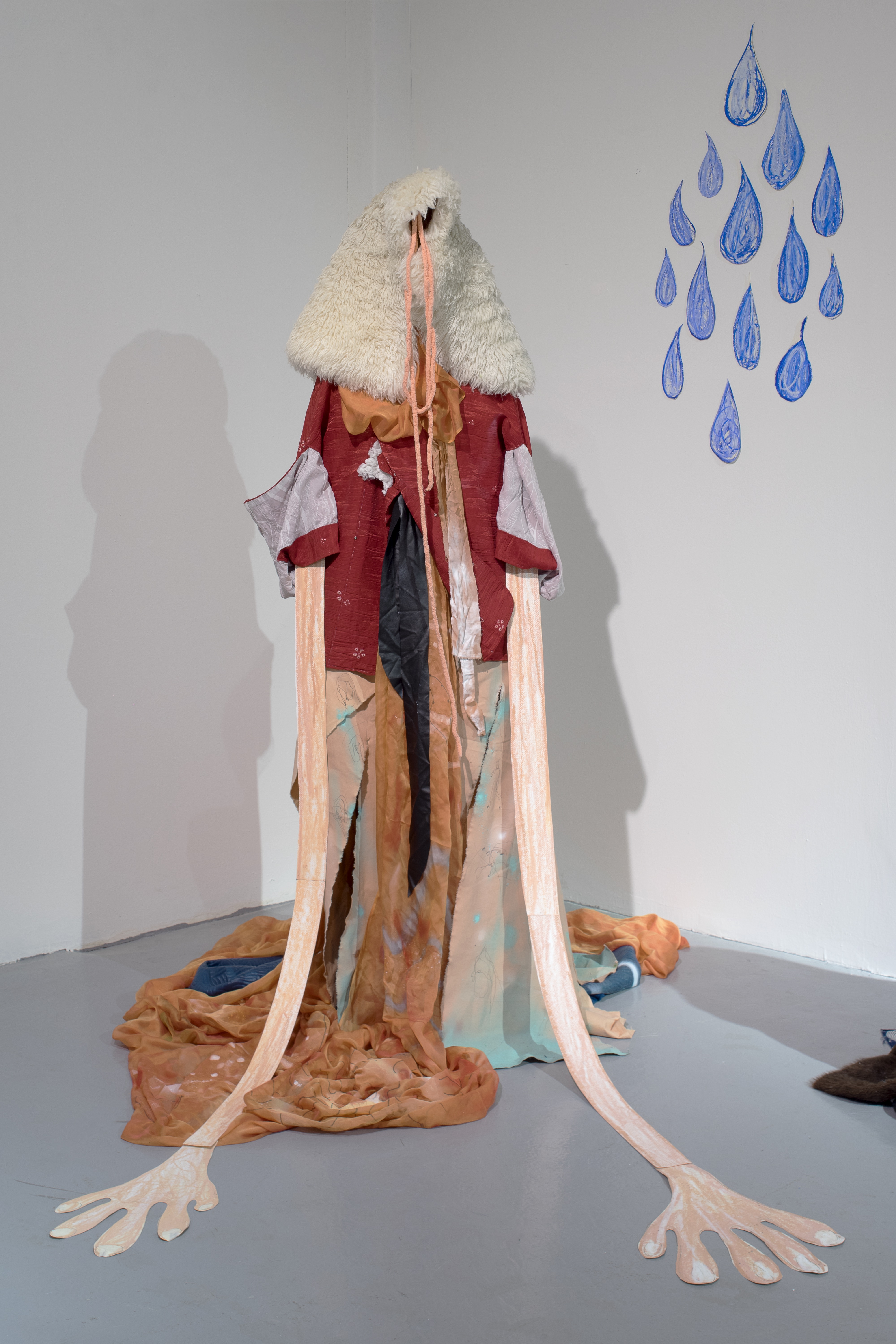
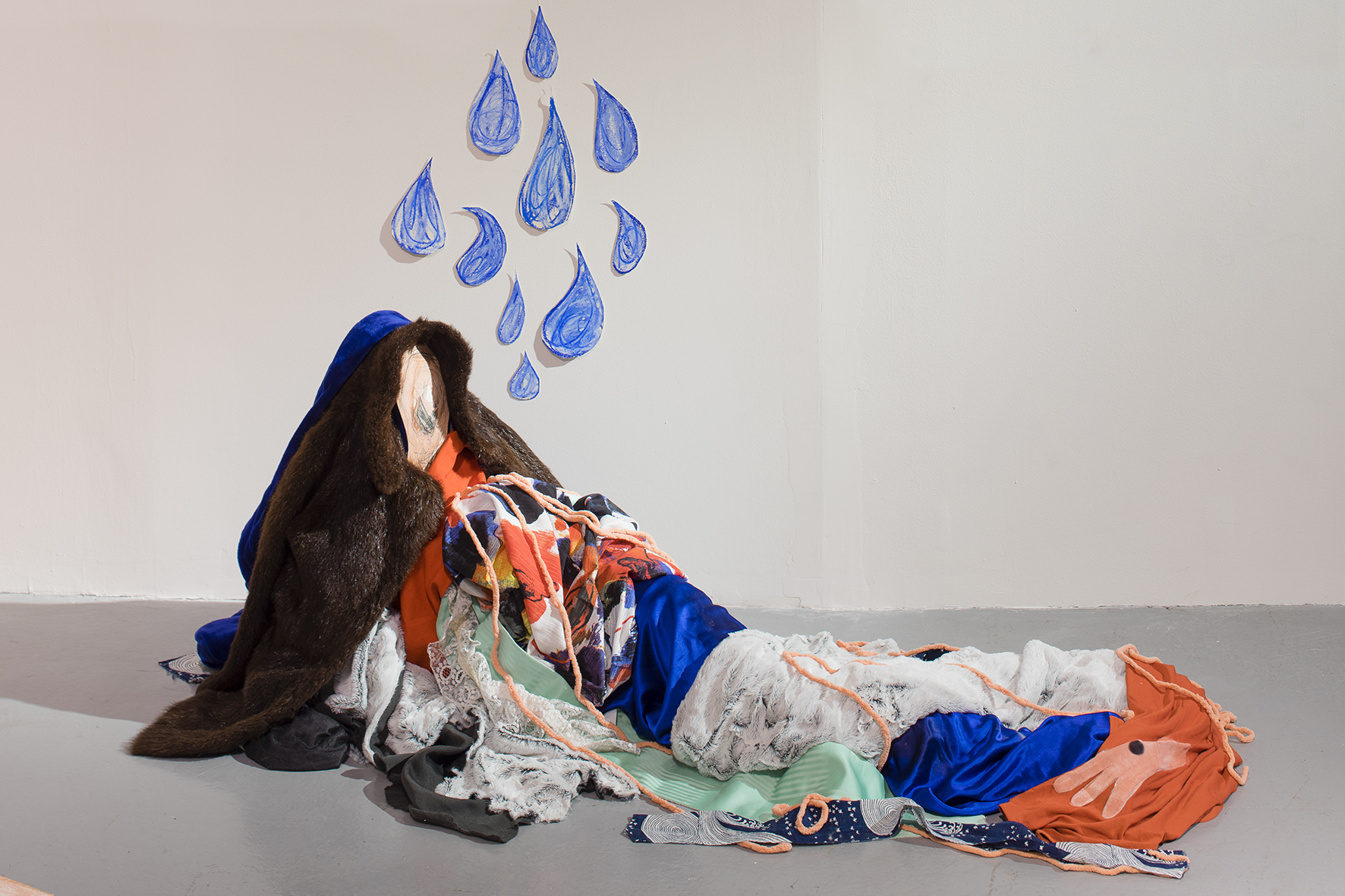
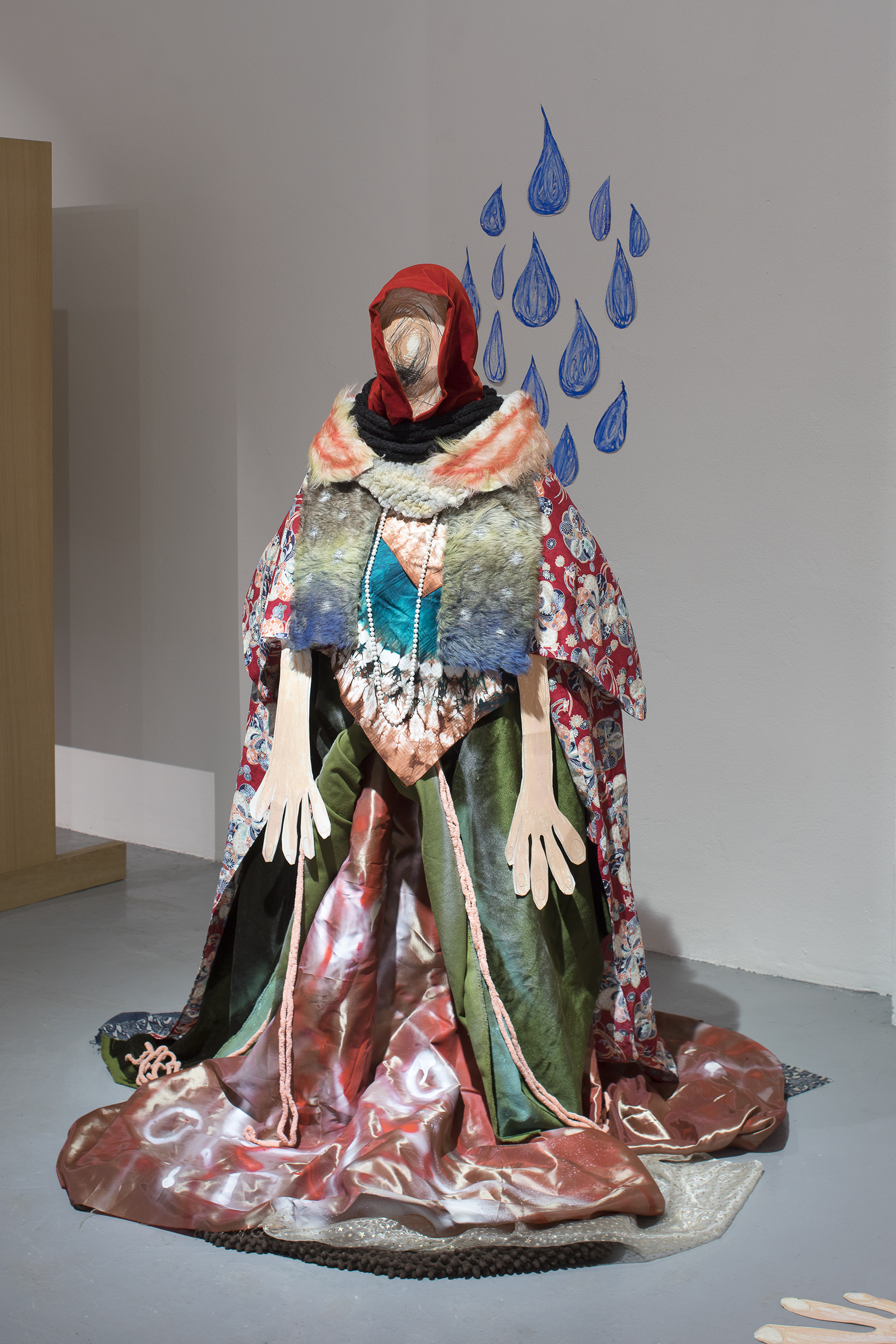
Unpredictable Liars
Memory, the past, and movement through time are central aspects in the oeuvre of Isabella Fürnkäs (b. 1988 Tokyo, Japan). In her works she negotiates themes such as corporeality, intimacy and self-perception, as well as alienation and patterns of communication. To address these themes, she uses numerous media, ranging from drawings, language, and gestures to sound and video works, performances, and spatial installations. A narrative moment runs through her work, creating a flow of language without always necessarily being language, but always with the possibility of language. Thus, words and images combine in her drawings, as "a kind of key to a level of meaning that hides the subconscious."(IF) In her Sculptural group of works Unpredictable Liars, which she constantly develops since 2017, she creates a giant supersized human counterpart. Fabric is similar to paper for Fürnkäs, and has been a recurring feature in her work since she was a student. She is interested in veiling and the question: what creates personality?
- Text by Leonie Runte
Hotels are unusual as “other spaces”[1] in the dense, symbolic fabric of the city. They are locations without a location, where, for a short while, we can escape ourselves. Hotel guests reside in the no man's land between worlds, between their notions about themselves and all the characters they can only dare to dream of.
In contrast, it’s rare to enter a hotel in one’s own city. For residents of a city, the rooms of a hotel, with their mirrored exteriors, remain closed, although their doors are always open. The empty rooms watch the city like a hidden panopticon.
At Hotel Nikko, a unique bathing room floats high above the city, a fictional residence in real space, where scantily clad guests languidly watch the daily bustle of the city dwellers below. The explanatory texts on the window panes scale down the room to an inverted display cabinet and the city to an exhibit. With the misty entity crowning the tower-like building, the Nikko uniquely occupies the hotel’s spatial and psychological coordinates and its nimbus as a Japanese incunabulum of the 1970s.
Perhaps we need an artist born in Japan to take us on a journey to one of the most visible yet most hidden places in the city. For the exhibition, Isabella Fürnkäs uncovers the magical, mystical space of the hotel as a stage for the performance of a subtle puppet theater, a staging of the fictional in the turbulence of the real.
Her characters, only vaguely outlined as figures with fabrics, furs, and textiles, somewhere between haute couture and an old clothing collection, welcome the hotel guest in the entrance lobby, whose glass doors open and close as if by magic. From here, where the artist creates an oppressive opponent, draped with blood-red tulle and shriveled furs, she accompanies the visitor with her five works up the stairs just behind the reception desk above the bar, where she places an ambivalent observer beside the lonely guest at the counter.
Related to the Japanese Nō theater, the assemblages, made from Asian fabrics as well as mundane everyday clothes or strong ropes, turn the establishment into a conjectural narrative, a theatrical choreography of subspaces, and speculations. Like the guests whose avatars appear mirrored in the works, the faces and limbs of the silent observers only pass by in quickly jotted sketches. Just as in Nō theater, where specific events are formalized in masks, costumes, and narratives handed down over centuries, any individuality is eradicated from the characters. They remain anonymous despite their narrative physicality.
With her work Isabella Fürnkäs thus inserts herself into the syntax and internal discourse of the establishment, in order to make it part of her production, too, leaving the coverage of art. Her figures blend almost seamlessly into the neat rows of wardrobes, between the guests’ cheap dreams, the packed suitcases and laden luggage carts, the hurried porters and the flying clothes rails, subtly converting them into an imposing set design.
In the fictional narrative, which now almost stages itself, the visitors’ dreams no longer appear as formative characters far from themselves, but as monstrous shadows in tactile proximity to an individual plunging into empty signs and designations, who could collapse inwards at any moment: an idiosyncratic round dance of flying cloth, robes, and skins that have lost their bones. For hiding under the wardrobes—to the left, right, and in the middle—is nothing but a large void that performs its ghostly dance of lost identities in the fleeting nature of the hotel—all without uttering a word.
- Text by Markus Ambach
[1] This is in the sense of Michel Foucault’s paper on “other spaces” as heterotopias, or “real utopias” inscribed in society.
Isabella Fürnkäs’ first solo exhibition at Galerie Clages evokes rapture and a loss of control. Already from outside the exhibition, oversized eyes direct one’s gaze toward four life-size figures, which are more than simply physical counterparts. On the contrary, they accumulate in the space and almost oppress the visitor with their drawn-on sensory organs, which grow in place of their faces and expand throughout the room. With their oversized teeth, ears, and tongues, they formally draw attention to the different avenues of sensory perception and seem to do so at an unabashed volume.
This drifting moment of being-thrown-off and the search for a calm point makes one‘s eyes wander further through the space. Droplets drawn on the gallery’s walls guide one‘s flowing gaze. The droplets, which inevitably conjure associations with tears, are a recurring motif in Fürnkäs’ work. They subtly work through the contradiction of water’s neutrality as an element and its natural fluidity in the form of tears and sweat, evoking the type of physical sensations and emotions that evade our control. There is something liberating in this ineluctable movement — no in-between state, nothing asked or sought-after. It seems that the overextended limbs of the figures reach, too, for that sort of autonomy.
- Text excerpt by Julia Haarman
Unpredictable Liars I, 2017
Installation, mixed media, various Japanese fabrics & cloth, oil sticks, acrylic spray, dimensions variable
Exhibitions
Orangerie Schloss Benrath, Düsseldorf (2022), Markus Ambach Projekte, Düsseldorf (2018), Clages, Cologne (2017), Meetfactory, Prague (2018)